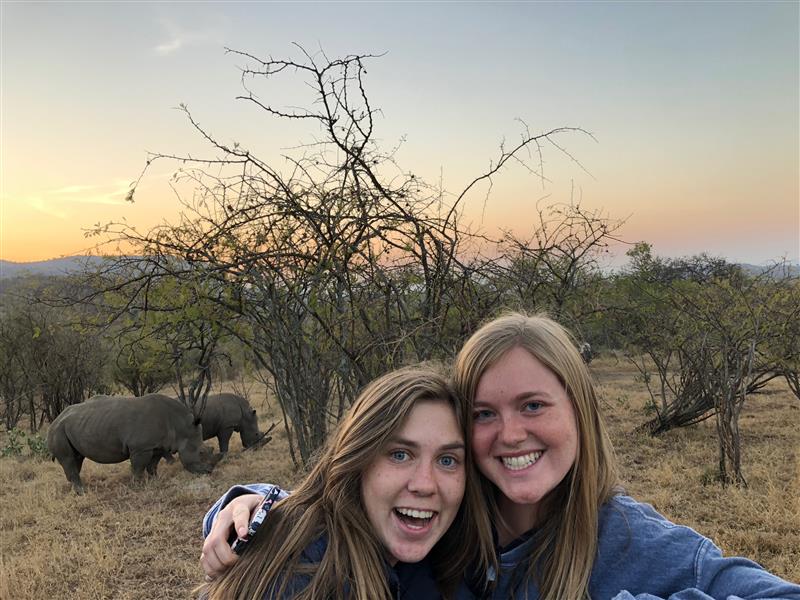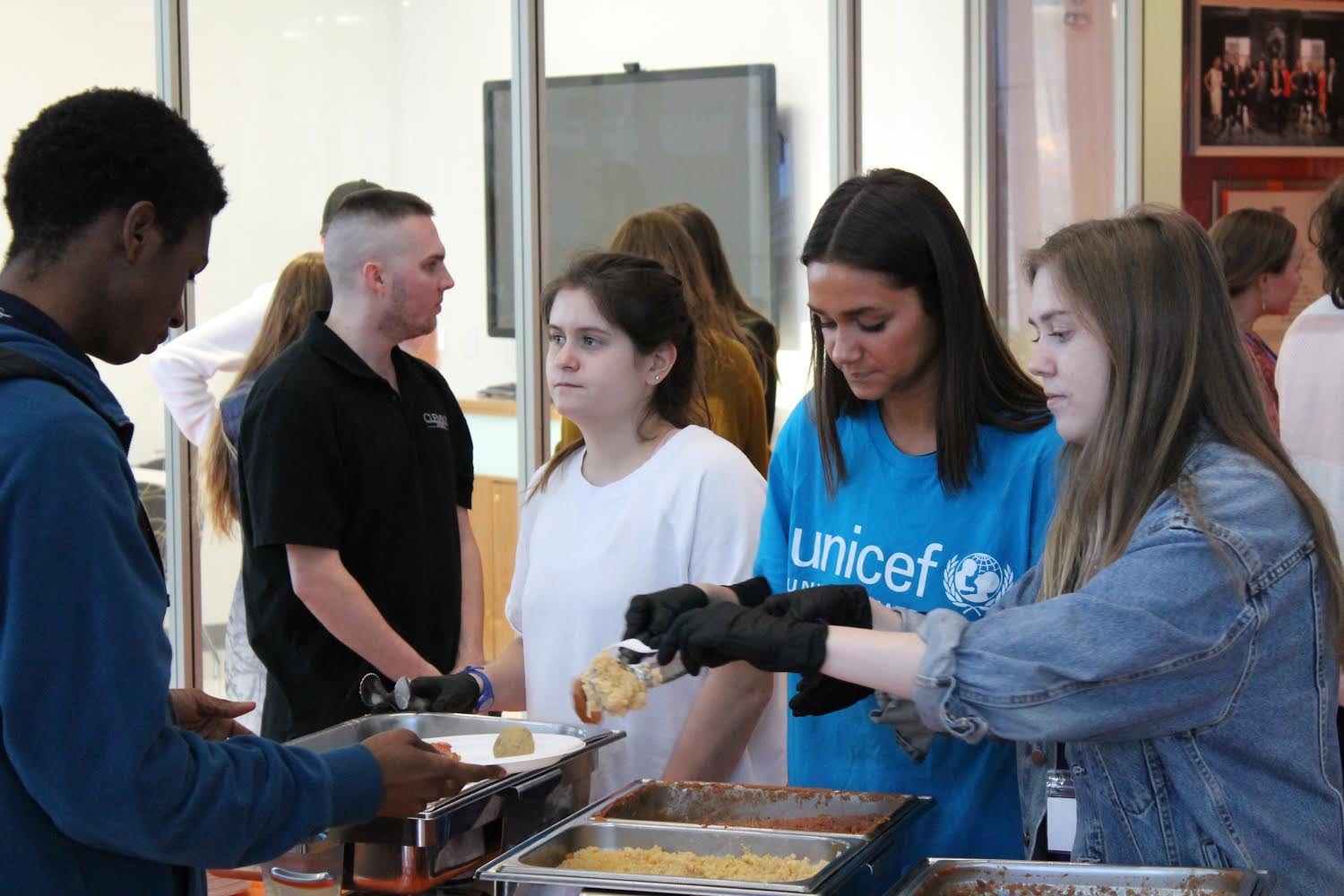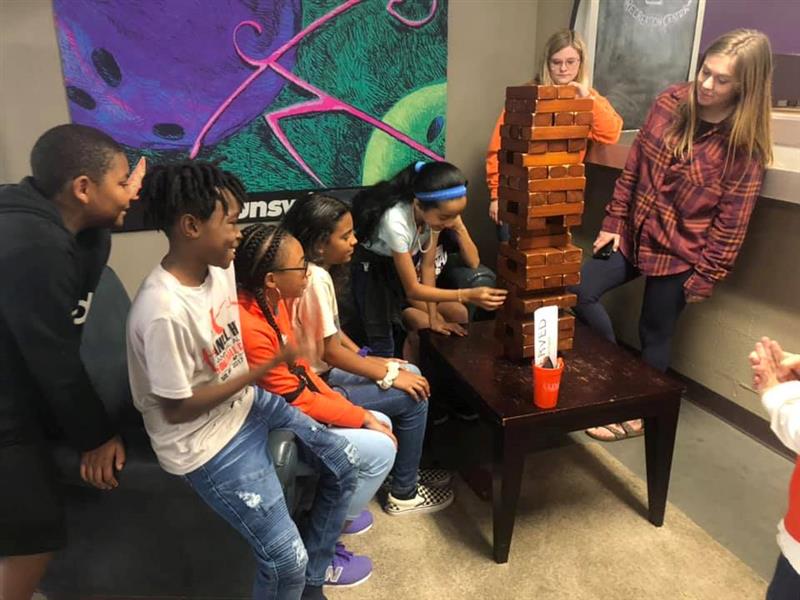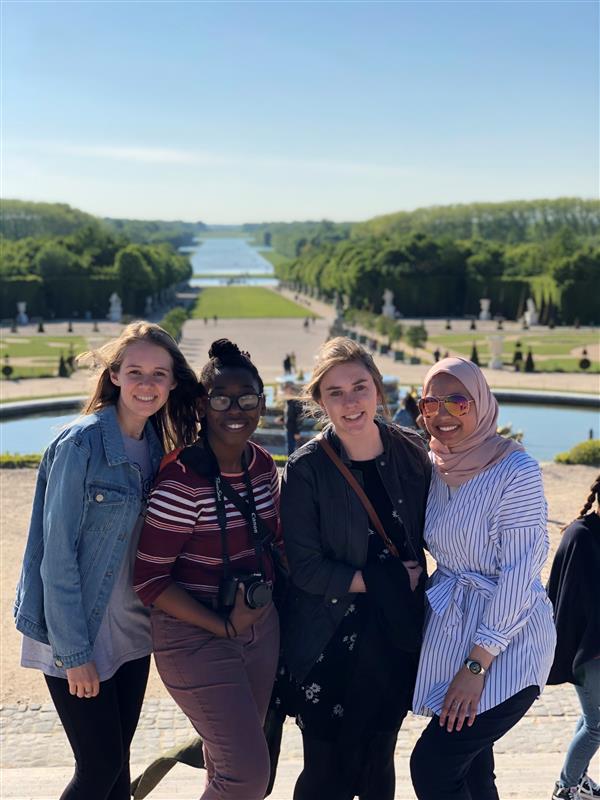Clemson’s fourth Truman Scholar named, second in two years
Recognized for her commitment to improving food insecurity, a Clemson University Honors College junior was named a Truman Scholar. This marks the second year in a row for a Clemson student to receive the coveted award and Clemson’s fourth recipient in 42 years.
Veronica “Ronnie” Clevenstine, an economics major from Greenville, will receive up to $30,000 for graduate study, along with leadership training, career counseling, and other opportunities within the federal government. She is the only student in South Carolina to be named a Truman Scholar this year.

Clevenstine intends to pursue a career working to address food insecurity policy, an issue deeply rooted in her personal experience.
“To become a Truman is something really special and puts you in an elite class with people who have achieved great things,” Clemson University President Jim Clements said when he surprised Clevenstine with the announcement during a Zoom call this week.
“The world needs people with big hearts who really care and want to lead and make a difference,” he said. “I’m thrilled for Ronnie for being selected, as well as our other two finalists, Tyler and Roann. It says a lot about Clemson and the heart that we have for these students to be recognized by such a prestigious program,” Clements said.
In addition to being awarded the Truman Scholarship, Clevenstine also received the Matt Locke Leadership Award this Spring. The Locke Award is presented to one Clemson student for outstanding leadership with regard to service and devotion to humankind and the University.

Leadership
Clevenstine has spent her years at Clemson – through volunteer and research activities – preparing for this role.

What sets her apart from other leaders is her ability to see the people behind the numbers, said Catherine Mobley, professor of sociology.
Her extensive community involvement includes serving as co-executive director of Clemson’s Food Collective, where she advocates for sustainable approaches to food sourcing; volunteering with the S.C. Rural Promise Zone, a federally designated area; and researching the impact of food insecurity across nine counties in South Carolina through the College of Behavioral, Social and Health Sciences Food and Nutrition Security project.
“Policy makers often neglect qualitative data during their deliberations, generally preferring to rely on ‘hard numbers’ instead,” Mobley said. In Summer 2020, Clevenstine participated in Mobley’s Creative Inquiry course on Covid-19 and food insecurity and Clevenstine currently serves as an intern for the Community Studies program in the Department of Sociology, Anthropology and Criminal Justice.
“While Ronnie realizes the importance of hard data for informing her deep and broad knowledge of food insecurity, she also recognizes the power of personal narrative and individual experiences,” Mobley said.
Personal Commitment
During her senior year of high school, Clevenstine’s family went through a difficult and tumultuous time, leading to a period of houselessness for her and her father. For six months, she stayed with a family friend as she navigated the college application process.
That personal experience shaped her perspective and rooted her in compassion for communities facing food insecurity.
“Conversations regarding providing public assistance for food, housing, and other necessities are often accompanied by questions of worth or labeling certain populations as ‘undeserving’ of aid,” Clevenstine said. “These conversations create a culture of stigmatization that I understand intimately and am committed to dismantling throughout my career.”
Academic Excellence
As a high school senior, Clevenstine was selected for the National Scholars Program, Clemson’s most selective academic merit scholarship.

“Ronnie has grown tremendously in her time at Clemson and made such huge impacts as a leader on our campus and in the community, but she has also retained the same unassuming thoughtfulness and concern for the human condition that our committee saw when selecting her as a National Scholar,” said Sarah Winslow, director of the National Scholars Program and senior associate director of the Honors College. “Her depth and range are simply stunning.”
Clevenstine gained experience thinking critically about public policy issues as part of the Honors College’s Dixon Global Policy Scholars program. The multiple-semester, interdisciplinary, team-taught program is designed to increase students’ knowledge of global policy, economics and politics through coursework and study abroad experiences.

Clevenstine, who is pursuing minors in political science and sustainability, chose to dive deeper into food insecurity for her departmental honors thesis. She is researching how state-based restrictions of the federal Supplemental Nutrition Assistance Program (SNAP) affect individuals with previous drug-related convictions.
“Beyond her academic accomplishments, Ronnie also is such an incredible person,” said Jeffrey Fine, professor of political science. “Some of my favorite moments with her have been our informal conversations and emails, often as a follow-up to a topic we discussed in class.”
“Regardless of the path she ultimately chooses for graduate school and beyond, I know that she’ll work tirelessly to make the world a better place by combating hunger and food insecurity,” said Fine.
This summer she’ll work as an intern with the Hamilton Project at the Brookings Institute, a D.C. think tank. She’s looking forward to gaining experience with a variety of policy issues related to affordable housing, economic security and economic justice.
Truman Scholarship Foundation
Clevenstine joins 62 scholars selected from a pool of 845 candidates nominated by 328 colleges and universities – a record number of applicants.
Since the origin of the Truman Scholarship in 1975, four Clemson students have been named Truman Scholars: Clevenstine in 2021, Ashni Bhojwani in 2020, Killian McDonald in 2017 and Joyce Baugh in 1979.
The Office of Major Fellowships opened in July of 2018 to provide a centralized hub to offer support and guidance to major fellowship candidates. Because each university may typically nominate only four students, those seeking Clemson’s nomination must participate in an extensive internal competition.

This year, Clemson had three students named Truman Finalists, the most ever. In addition to Clevenstine, the finalists were Roann Abdeladl, a health science major recognized for her work on disparities in health care for minority communities; and George “Tyler” McDougald, a history and English major recognized for his work on LGBTQIA+ civil rights and HIV decriminalization.
This year’s 62 Scholars were recommended by 17 independent selection panels based on the finalists’ academic success and leadership accomplishments, as well as their likelihood of becoming public service leaders. Regional selection panels met virtually and included distinguished civic leaders, elected officials, university presidents, federal judges and past Truman Scholarship winners.
Students interested in joining Clemson’s Truman Scholarship development program or learning about other nationally competitive programs should contact the Office of Major Fellowships at 864-656-9704 or fellowships@clemson.edu.

